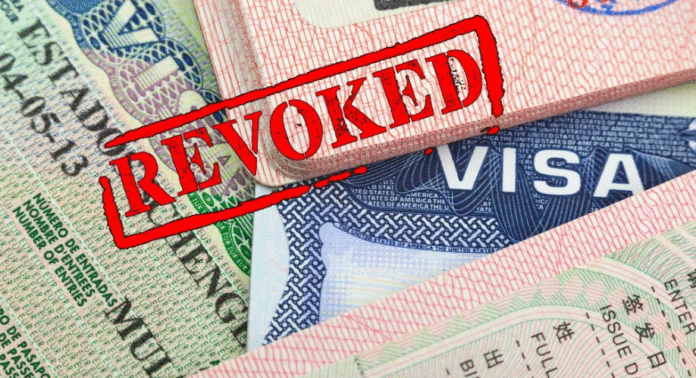By: Aarav Sapra
The United States has revoked multiple visas in recent weeks as a growing effort to respond to national security threats and foreign policy challenges. Similarly, Donald Trump recently advocated for blocking international students from Harvard University, indicating that both examples have a similar resemblance. Furthermore, this decision appears to be confirmed by certain U.S. State Department Officials where confident spokespeople have suggested that specific implantations of visa revocations are being implemented under Section 212 of the Immigration and Nationality Act. Ultimately, this implementation allows the U.S. government to deny or revoke visas if individuals are found to have engaged in activities which may be considered harmful to the U.S. government. For instance, some of these activities include suspected cybercriminal activity or individuals associated with foreign military or intelligence organizations. This can be further connected to the fact that multiple student and research visas have reportedly been cancelled due to concerns about intellectual property theft and academic espionage, potentially supporting Trump’s thoughts behind blocking international students’ entrance to Harvard.
On the other hand, many critics argue that both the recent visa revocations and former President Trump’s proposed bans on international students risk significantly undermining academic freedom, innovation, and the United States’ reputation as a global leader in education and research. Although Trump may believe that this policy is essential for keeping the United States safer as a country, many experts believe that these measures could discourage top international talent from coming to the U.S. Overall, this could potentially weaken the country’s scientific and academic progress.
Furthermore, it has been noted that human rights organizations and immigration policy analysts have expressed concern that these broad actions could lead to racial profiling, targeting individuals based not on evidence of wrongdoing but on their country of origin, which can cause more problems in the country. This policy may foster fear and mistrust within academic communities, damaging many essential components of the United States.
Finally, this approach will likely cause conflicts with countries that send large numbers of students to the U.S. While national security is essential, many believe that smarter, more targeted strategies should be used where both qualities and components are balanced.
As global tensions continue to rise, particularly in regions like Eastern Europe and East Asia, as seen with current and rising conflicts, the U.S. is increasingly using immigration and visa policy as tools of national defense. Whether or not this trend continues will depend on the outcomes of specific investigations where the balance between openness and security will be a central issue.

